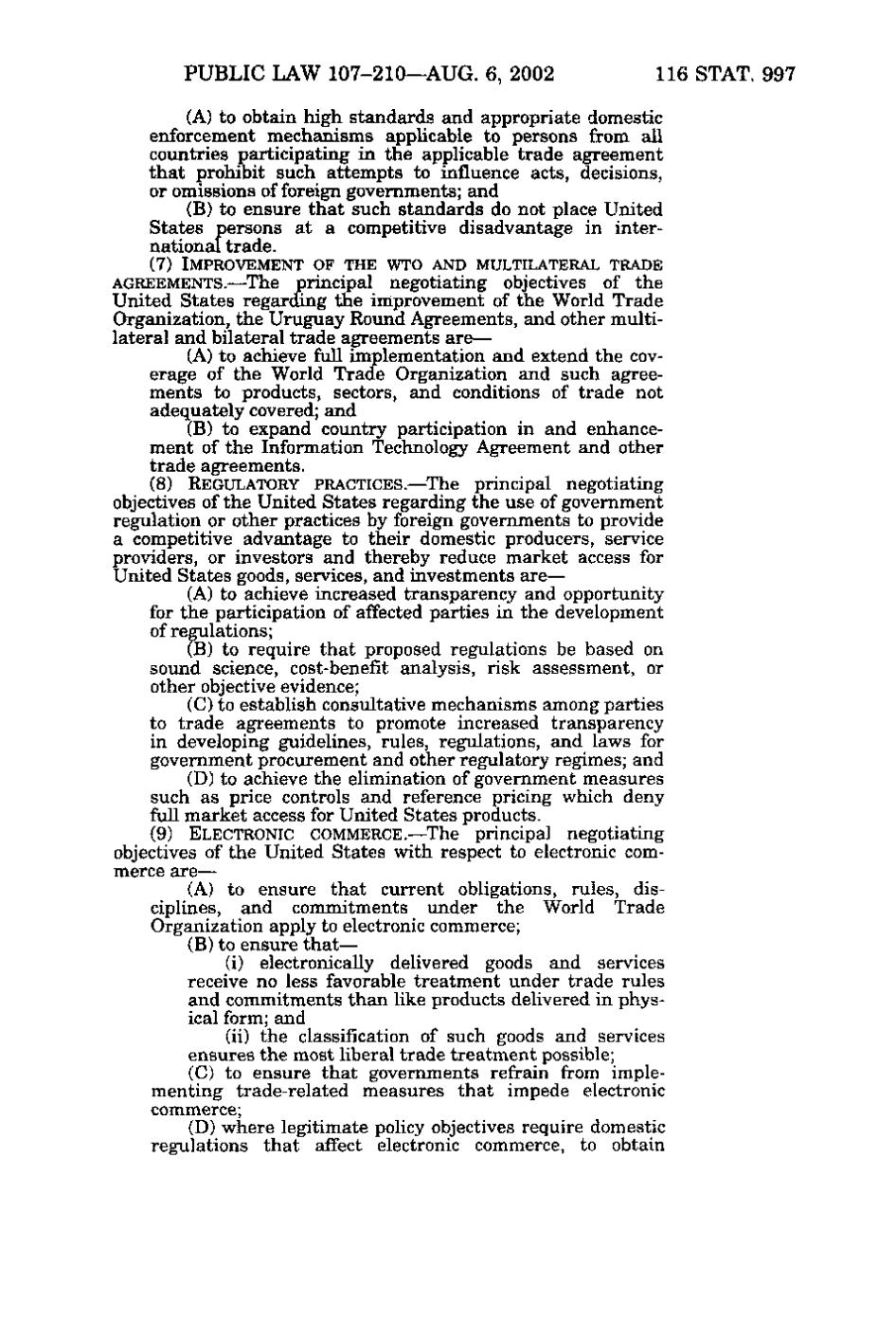PUBLIC LAW 107-210—AUG. 6, 2002 116 STAT. 997 (A) to obtain high standards and appropriate domestic enforcement mechanisms appHcable to persons from all countries participating in the applicable trade agreement that prohibit such attempts to influence acts, decisions, or omissions of foreign governments; and (B) to ensure that such standards do not place United States persons at a competitive disadvantage in international trade. (7) IMPROVEMENT OF THE WTO AND MULTILATERAL TRADE AGREEMENTS. — The principal negotiating objectives of the United States regarding the improvement of the World Trade Organization, the Uruguay Round Agreements, and other multilateral and bilateral trade agreements are— (A) to achieve full implementation and extend the coverage of the World Trade Organization and such agreements to products, sectors, and conditions of trade not adequately covered; and (B) to expand country participation in and enhancement of the Information Technology Agreement and other trade agreements. (8) REGULATORY PRACTICES.—The principal negotiating objectives of the United States regarding the use of government regulation or other practices by foreign governments to provide a competitive advantage to their domestic producers, service providers, or investors and thereby reduce market access for United States goods, services, and investments are— (A) to achieve increased transparency and opportunity for the participation of affected parties in the development of regulations; (B) to require that proposed regulations be based on sound science, cost-benefit analysis, risk assessment, or other objective evidence; (C) to establish consultative mechanisms among parties to trade agreements to promote increased transparency in developing guidelines, rules, regulations, and laws for government procurement and other regulatory regimes; and (D) to achieve the elimination of government measures such as price controls and reference pricing which deny full market access for United States products. (9) ELECTRONIC COMMERCE.—The principal negotiating objectives of the United States with respect to electronic commerce are— (A) to ensure that current obligations, rules, disciplines, and commitments under the World Trade Organization apply to electronic commerce; (B) to ensure that— (i) electronically delivered goods and services receive no less favorable treatment under trade rules and commitments than like products delivered in physical form; and (ii) the classification of such goods and services ensures the most liberal trade treatment possible; (C) to ensure that governments refrain from implementing trade-related measures that impede electronic commerce; (D) where legitimate policy objectives require domestic regulations that affect electronic commerce, to obtain
�
